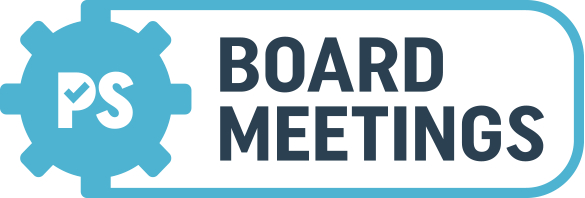When board members are not fully engaged, they often skip meetings.
Click on the questions below to learn more about what may be causing a lack of engagement and why your board members may be missing meetings.
 |
Board Meetings > People aren’t coming to our meetings! > Engagement Is there a lack of engagement? |
Click on the questions below to learn more about what may be causing a lack of engagement and why your board members may be missing meetings.
When board members just agree with the CEO without thinking critically, asking tough questions, and putting the needs of the organization first, what makes board service so interesting, important, and yes, even fun, disappears. And that, in turn, leads to disengagement and eventually poor meeting attendance. Remind your board members that it’s their job to make sure the organization is effective and that they can’t do that without being present and asking questions.
For more on how to address a rubber-stamping board, click here.
When an executive committee makes most of the decisions, the remaining board members begin to believe that their contributions are not valued and required. Thinking that the executive committee is the “real board,” they determine that their meeting attendance doesn’t really matter; no one will miss them.
If that’s the case on your board, consider whether your executive committee has too much power. As a board, ask what the committee should and should not do, and whether you really need an executive committee at all.
Check out these resources to learn more:
![]() Executive Committee
Executive Committee
![]() Executive Committees Beware!
Executive Committees Beware!
Sometimes board members are not fully engaged because they don’t receive the information they need — or it’s not in a helpful format — to prepare for meetings and decision making. Rather than attend a meeting and come across as uninformed, they just don’t show up.
Ask board members for feedback on the information they receive prior to meetings. Do they need more or less information or in a different format? Would it be helpful to develop and use a dashboard? Consider these and other questions surfaced in the following resources.
![]() Board Members Zoning Out? Stop Reading the CEO Report
Board Members Zoning Out? Stop Reading the CEO Report
![]() 10 Common Benefits of Dashboard Reporting
10 Common Benefits of Dashboard Reporting
High-performing boards invite their board members to respectfully express healthy skepticism or intelligent doubt during important deliberations. They encourage their members to focus on the issues and not interpret any differences of opinion as character flaws in their colleagues. Engaging in what Patrick Lencioni calls “productive ideological conflict” – rather than destructive fighting, relationship conflict, or interpersonal politics – is essential to effective dialogue.
Click on these resources to learn how you can build a culture of inquiry on your board:
![]() Building Blocks of Inquiring Boards
Building Blocks of Inquiring Boards
![]() Personalities That Help Build a Culture of Inquiry
Personalities That Help Build a Culture of Inquiry
Would you want to attend a meeting if those in attendance didn’t respect each other? Look through the following resources to find tips and tricks on overcoming conflict and building teamwork.
![]() Handling Conflict During Board Meetings
Handling Conflict During Board Meetings
![]() Eight Ways to Increase Your Board’s Ability to Work as a Team
Eight Ways to Increase Your Board’s Ability to Work as a Team
All print orders placed between Friday, July 2nd– Sunday, July 11th will be processed on Monday, July 12th and shipped on Tuesday, July 13th.